This is a defining moment for every Illinoisan. It is, especially, a defining moment for new House Speaker Chris Welch, Senate President Don Harmon and Gov. J.B. Pritzker.
Pritzker and Welch, in particular, long have said they support fair maps, but what’s their definition? What will the three officials commit to in order to ensure equity? What does that mean now that things have become much more complicated because the Census Bureau has said data from the 2020 count might be released as late as the end of September?
Illinois’ constitution lays out very specific dates by which mapping must be done, or a special commission is created. How that is addressed will be fascinating.
Population counts and political mapping are not arcane, bureaucratic, eye- glazing exercises. For instance, the census helps determine how many COVID vaccines we get. Mapping is far from arcane to elected officials. Consider the breathless declarations by some in Chicago recently that only they know their communities best and how those communities should be drawn and represented. Elected officials know remapping also can affect the lifespans of their political careers. When districts are drawn to help one party or the other, it takes away our choices and influences oodles of government policy decisions that literally affect our lives.
So what is fair? It cannot be left to vagaries. Illinoisans know very well what’s fair when it comes to drawing new political districts. That’s why 75 percent of them support independent map making.
DAVID GREISING: The need for leadership on fair maps
Yet, in this moment, the power to draw congressional and state district lines remains with state lawmakers. Will they draw lines using the most recent census data available and projections to push through new maps by summer so the Democratic supermajorities don’t have to entertain Republican input? That’s a popular line of thinking, along with the speculation that Democrats expect to be sued over maps.
But it is not fair to expect average Illinoisans to find the time, pay the legal fees and hope for an equitable court ruling just to have a shot at reasonable representation.
Given the current challenge of extraordinarily late census data, here is what’s fair:
Lawmakers should hold multiple hearings, seek input from people all over Illinois, listen to them, collect their ideas and maps of their communities of interest, and respond to them.
They should draw maps that preserve and maximize minority voting rights, communities of interest and electoral competition. Illinois’ maps historically have protected incumbents and discouraged competitive elections. For the past four election cycles, the total number of uncontested races ranged between 45 percent and 58 percent. That is the opposite of fair.
If lawmakers choose to draw maps without waiting for new census data, they should commit to unveiling those maps, providing weeks of time and holding at least a few more hearings to allow Illinoisans to provide feedback. The maps might need to be adjusted before votes are cast.
Lawmakers ought to do what the National Conference of State Legislaturessuggests, which is to commit, by law, to revisiting and revising the maps once
the new census data are distributed. With new census data, the people deserve a chance to provide input again.
Public hearings, public input, and revisions before and after maps are proposed and before they are approved is fair. Maximizing minority voting rights and electoral competition over incumbent protection is what’s equitable. Adjustments to the maps to fully reflect the most accurate findings from the most recent census when it is available are what’s required. Lawmakers should approve a law committing to this and to producing a compliance report describing how they met these principles.
That is what’s equitable and just. It’s what we expect no matter how challenging the timeline is for our new political districts. The very concept of one person, one vote embedded in our ideal of democracy demands it.
Madeleine Doubek is executive director of Change Illinois, a nonpartisan nonprofit that advocates for ethical and efficient government.
This column originally appeared in Crain’s Chicago Business.
